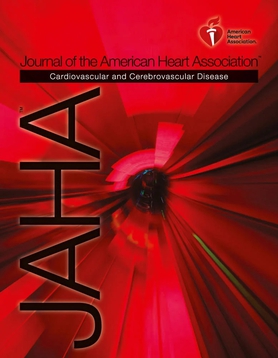围孕期饮食质量与妊娠高血压疾病之间的关系:日本环境与儿童研究
IF 5
1区 医学
Q1 CARDIAC & CARDIOVASCULAR SYSTEMS
引用次数: 0
摘要
背景人们对健康饮食与妊娠高血压疾病(HDP)风险之间的关系知之甚少,尤其是在饮食习惯不同的非西方人群中。我们的目的是调查围孕期饮食质量与日本孕妇罹患妊娠高血压疾病风险之间的关系。方法和结果对参加日本环境与儿童研究(Japan Environment and Children's Study)前瞻性队列的 81 113 名日本孕妇在妊娠头三个月前一年的饮食摄入量进行了评估,采用的是经过验证的自填式食物频率问卷。总体饮食质量通过平衡膳食评分(BDS)进行评估,该评分基于各国膳食指南的遵守情况和膳食方法(DASH)的评分。HDP病例通过病历记录确定。采用具有单调效应的贝叶斯逻辑回归模型研究了饮食质量与 HDP 风险之间的关系。我们发现了 2383 例(2.9%)HDP 病例。较高的 BDS 与较低的 HDP 风险相关。如果将 BDS 的最高五分位数与最低五分位数进行比较,则 HDP 的调整赔率 (aOR) 为 0.83(95% 可信区间 [CrI],0.73-0.94)。DASH评分与HDP风险呈单调剂量反应式的反比关系(DASH评分每增加1个五分位数,aOR为0.92 [95% CrI, 0.89-0.95])。本文章由计算机程序翻译,如有差异,请以英文原文为准。
Association Between Periconceptional Diet Quality and Hypertensive Disorders of Pregnancy: The Japan Environment and Children's Study.
BACKGROUND
Little is known about the relationship of healthy diets, which are widely recommended to prevent diseases in general populations, with the risk of hypertensive disorders of pregnancy (HDP), particular among non-Western populations with different dietary habits. We aimed to investigate the association between periconceptional diet quality and the risk of HDP among pregnant Japanese women.
METHODS AND RESULTS
Dietary intake over 1 year before the first trimester of pregnancy was assessed using a validated, self-administered food frequency questionnaire among 81 113 pregnant Japanese women who participated in a prospective cohort of the Japan Environment and Children's Study. Overall diet quality was assessed by the Balanced Diet Score (BDS) based on adherence to the country-specific dietary guidelines and the Dietary Approaches to Stop Hypertension (DASH) score. Cases of HDP were identified by medical record transcription. The association between diet quality and HDP risk was examined using Bayesian logistic regression models with monotonic effects. We identified 2383 (2.9%) cases of HDP. A higher BDS was associated with a lower risk of HDP. When comparing the highest with the lowest quintile of the BDS, the adjusted odds ratio (aOR) of HDP was 0.83 (95% credible interval [CrI], 0.73-0.94). The DASH score and HDP risk were inversely associated in a monotonic dose-response manner (aOR per 1-quintile increase in the DASH score, 0.92 [95% CrI, 0.89-0.95]).
CONCLUSIONS
A high-quality diet, which is recommended for disease prevention in general populations, before conception may also reduce the risk of HDP among pregnant Japanese women.
求助全文
通过发布文献求助,成功后即可免费获取论文全文。
去求助
来源期刊

Journal of the American Heart Association
CARDIAC & CARDIOVASCULAR SYSTEMS-
CiteScore
9.40
自引率
1.90%
发文量
1749
审稿时长
12 weeks
期刊介绍:
As an Open Access journal, JAHA - Journal of the American Heart Association is rapidly and freely available, accelerating the translation of strong science into effective practice.
JAHA is an authoritative, peer-reviewed Open Access journal focusing on cardiovascular and cerebrovascular disease. JAHA provides a global forum for basic and clinical research and timely reviews on cardiovascular disease and stroke. As an Open Access journal, its content is free on publication to read, download, and share, accelerating the translation of strong science into effective practice.
 求助内容:
求助内容: 应助结果提醒方式:
应助结果提醒方式:


